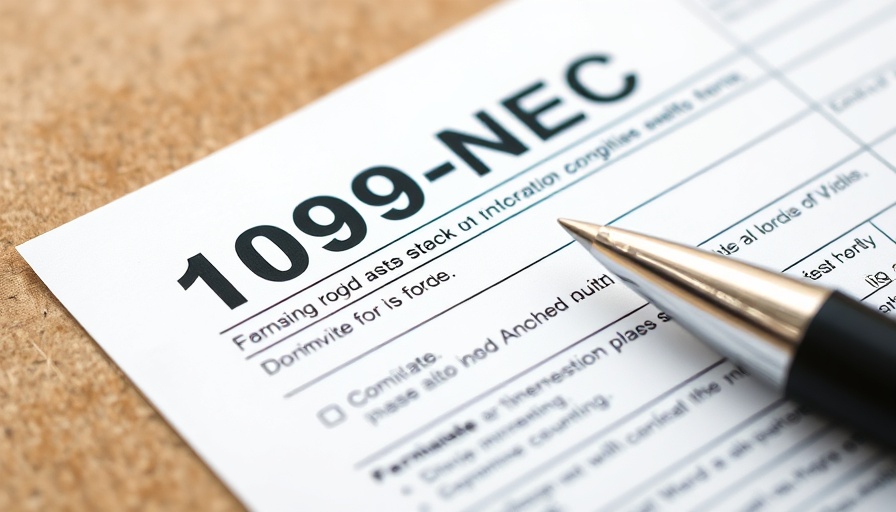
Understanding the 1099 Form: What You Need to Know
The 1099 form plays a critical role in the United States tax system, serving as a way to report various types of income that are not captured by traditional wages. It's essential for tax planners, accountants, and individuals alike to grasp the nuances of this form to navigate their tax obligations effectively. As the tax deadline approaches, knowing how to leverage this form can lead to better tax strategies and potential savings.
Historical Context: The Evolution of the 1099 Form
Introduced to the tax system decades ago, the 1099 form has evolved into multiple variations designed to report different types of income. From freelance earnings reported on a 1099-MISC to interest income reported on a 1099-INT, each variant serves to inform the IRS about income received throughout the year. Understanding the history of tax documentation sheds light on its importance in ensuring compliance and transparency in income reporting.
What is the 1099 Form Used For?
The primary purpose of the 1099 form is to report earnings that aren’t part of an employment relationship. Independent contractors, freelancers, investment income, and rental income all fall under its umbrella, making it a vital tool for those outside conventional employment. Tax planners can leverage this form to advise clients on potential deductions and accountable income that must be reported.
Common Misconceptions about the 1099 Form
One prevalent misconception is that only self-employed individuals need to worry about the 1099 form. In reality, anyone who receives income that doesn’t come through a W-2 form should pay attention. This can include gig workers, landlords, or anyone receiving interest or dividends. Understanding these nuances is crucial for effective tax planning and ensuring compliance with tax laws.
Tax Benefits and Implications of the 1099 Form
While the 1099 form indicates income, it’s essential to recognize the potential for tax deductions that can alleviate tax burdens. For independent contractors and small business owners, expenses related to their work—from materials to travel—can often be deducted, counterbalancing the income reported. This further emphasizes the importance of meticulous record-keeping and comprehension of tax implications.
Future Predictions: Navigating Changes in Tax Laws
As the IRS continues to modernize its approach to taxation, changes to forms like the 1099 may be on the horizon. Understanding potential shifts in tax law can equip tax planners and clients alike with the foresight needed to adjust their tax strategies. Being proactive about these shifts can lead to better financial planning and minimized liabilities.
Actionable Insights for Tax Preparers and Clients
For tax enthusiasts and professionals, staying updated on tax strategies related to the 1099 form is paramount. Consider consulting a tax advisor to explore deductions and planning for various income types. Engaging in tax education through seminars or workshops can also enhance your understanding of the implications involved.
As tax day looms, those familiar with 1099 forms can navigate their filing responsibilities with confidence. By grasping the intricacies of income reporting and available deductions, taxpayers can turn what may seem like an obligation into an opportunity for financial strategy and long-term savings.
 Add Row
Add Row  Add
Add 



Write A Comment